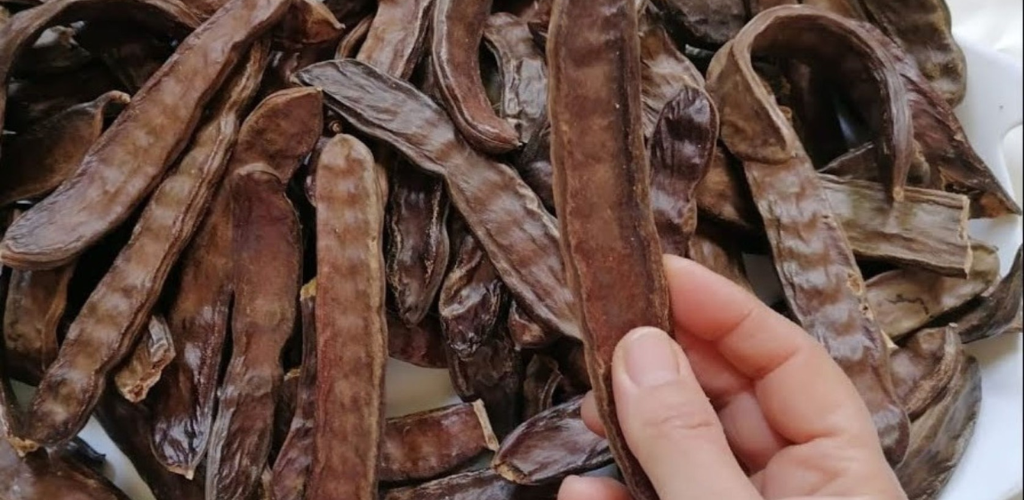The almost forgotten fruit with multiple virtues: carob
In the teeming world of fruits and foods that are beneficial to our health, some treasures remain unknown or forgotten, despite their remarkable nutritional properties. Among them, carob, an ancestral fruit with exceptional virtues, deserves a special place. Highly prized by our ancestors, this fruit is returning to the forefront of the culinary scene, perfectly illustrating how ancient traditions can enrich our contemporary knowledge about food.
Origin and description of carob
Carob, scientifically called Ceratonia siliqua, comes from a tree of the Fabaceae family. Native to the Mediterranean regions and Western Asia, this tree produces pods that resemble brown beans, containing a sweet pulp and seeds.
Nutritional profile of carob
Richness and diversity define the nutritional profile of carob. This fruit is an important source of B vitamins, as well as essential minerals such as calcium, iron, magnesium, potassium and zinc. It is also rich in dietary fiber, protein and antioxidants, making it a complete and beneficial food.
Health benefits of carob
Digestive support: Carob, thanks to its high fiber content, is excellent for digestion. It regulates intestinal transit, prevents constipation and supports the general functioning of the digestive system.
Weight management: The fiber in carob increases the feeling of satiety, which can help control appetite and effectively manage weight.
Cardiovascular health: Cholesterol-free and rich in potassium, carob helps lower blood pressure and maintain a healthy heart, thus reducing the risk of cardiovascular disease.
Strengthening the immune system: Antioxidants, such as polyphenols present in carob, strengthen the immune system and protect cells from damage caused by free radicals.
Cholesterol Reduction: Carob’s soluble fiber helps lower LDL cholesterol levels, promoting a healthy cardiovascular system.
Essential Nutrient Supply: Carob is an excellent source of calcium, which is crucial for bone health, and iron, which is needed to prevent anemia.
Carob Consumption
Carob is versatile in its uses. The dried pods can be eaten directly as a snack or incorporated into various culinary preparations, including desserts and pastries. In powder form, carob is often used as an alternative to cocoa, as it contains no caffeine or theobromine, making it gentler on the nervous system.
